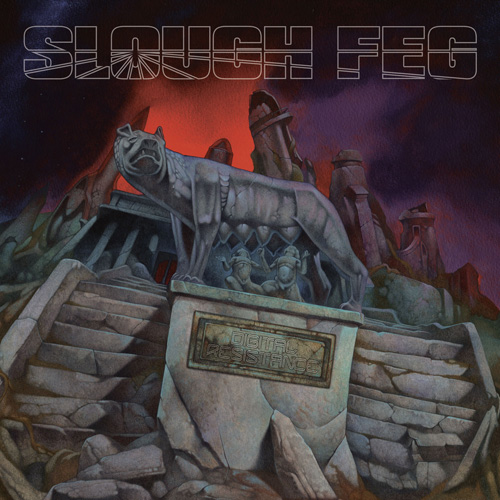By Avinash Mittur
A resistor is a component found in analog electronic circuits. It impedes the flow of current, and experiences a change in electric potential energy (or voltage, as most call it) across its two ends. All of the current going into a resistor will make it through, but not without that voltage drop. That being said, here’s a bit of an oxymoron: a “digital resistor.” This particular resistor doesn’t impede the flow of electrical current, but rather the onslaught of digital technology in the field of audio engineering. The digital resistor I am referring to is a man named Justin Weis, proprietor of Trakworx Studio in South San Francisco, CA. Weis has served as an engineer on dozens of utterly brilliant metal albums by many of the genre’s most special acts, and his work consistently equals, if not betters, the frequently high quality of the music itself.
One of Weis’ oldest clients is a band called Slough Feg. For a little over twenty years, they’ve been one of the Bay Area’s finest champions for classic heavy metal, proudly standing alongside the likes of Brocas Helm, Midnight Chaser and Hammers of Misfortune. They’ve released albums with a shockingly high level of regularity, and the band consistently delivers one of the most fun live shows you’ll ever see in a grimy dive bar. Singer and guitarist Mike Scalzi is often cited as the sole constant throughout Slough Feg’s history. Well, maybe not the only constant; Justin Weis has served as an engineer on every Slough Feg album in one way or another. Slough Feg and Weis’ latest joint effort, Digital Resistance, is set to release on February 18th on Metal Blade Records.
When I call Scalzi on a Saturday afternoon, the very first topic of conversation is on how he met our digital resistor nearly twenty years ago. He insists that the tale is a boring one, though I fail to agree. “It’s not really that exciting,” Scalzi says. “He was working at the California Recording Institute and the other Justin—a lot of people get confused a lot—our old bass player Justin Phelps who has now engineered several of our records as well, they both went there as students. We were putting out our first album ourselves and we wanted to get it mastered, so we brought it to Justin Weis. That album was really fucked up; there was this weird thing where the guy who paid for it to be recorded wanted to put it out, but he went insane and held onto the masters for it. Then we had to master the album off of a cassette. He was like, ‘I’m not releasing the digital audio tape until I get all this money,’ and blah blah blah. We were like, ‘We don’t owe you any money. You were going to put this out. You paid for it, but then you never did anything.’ So we took a cassette home and took it to Justin Weis. He cleaned it up and made it sound better.”
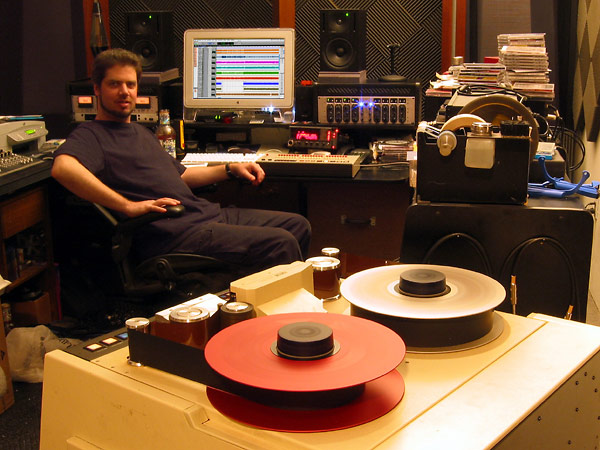
I speak with Justin Weis at a more random hour, around 7 PM on a Thursday. He has just finished a mastering job, one among several hundred that he’s performed, and yet he still easily recalls the peculiarity of Slough Feg’s self-titled first album. “All they had was a crappy reference low-bias cassette that they had been given,” Weis recalls. “They were like, ‘Can we make this into an album?’ So I played it and it was unlistenable, it was horrible. Not only was it poorly recorded and mixed, it was on a low-bias cassette. It was a major rescue job. If you listen to that album today, it was pretty unusual sounding. It was kind of brash and harsh, and unclear at the same time because the source was so poor to begin with. I used an Aural Exciter and a BBE and a ton of EQ just to make it so that you could understand what the music was. It was crazy, I’ve never done anything like that since. This was in the early days when I wasn’t very experienced yet. It was just like, ‘Well, I’ll try this and I’ll try that,’ until we got it to where it is.”
Happy with the results, Slough Feg continued to work with Weis. Whether he’s taken on all of the engineering, only partially recorded an album or performed mastering duties, every Slough Feg album has passed through Justin Weis’ ears before being pressed. For the most part, one can hear a logical progression and an increase in quality throughout Slough Feg’s recorded career, and Weis has consistently been happy with his work with the band. “I wouldn’t let [an album] go out if I wasn’t. Just take the Slough Feg albums that I recorded, you hear them get clearer as time goes on, more three-dimensional and bigger sounding,” Weis claims. “I think that we were all pretty happy with [the albums] at the time. I think sonically speaking, from a production standpoint, everybody’s standards have gone up in the last ten to fifteen years. I’d say we expect more out of ourselves now and the newer albums kind of reflect that I think.”
 There was an album or two that didn’t follow that natural progression though, the first of which was Traveller, a sci-fi epic that stands as one of Slough Feg’s finest creations. According to Mike Scalzi, it’s also the album where Weis truly cemented his reputation as a world-class engineer. “He was always ahead of the curve for his level of experience. Even when he did the first album, he did a lot of stuff that someone else might not have done. By the time he did Down Among the Deadmen, he was doing really well for the level of equipment he had. But then when he did Traveller was when it got really… by the time he did Traveller he was the best engineer around here for metal I think. I can’t think of anybody better.” Traveller boasted a bright and punchy, yet very thick production that Scalzi still holds in high regard to this day. “We just wanted to make it sound appropriate for the story being told and appropriate for the songs we were writing. I think Justin nailed that album perfectly, the direction came out exactly how I wanted it to.” Weis gave it his all for Traveller, and today the digital resistor looks back on the album fondly. “I really like the sound of Traveller, and it sounds the way it does because Mike came in and told me, ‘This is a sci-fi concept album. I want it to be slick and really bright and I want the drums up front. This isn’t going to be like our other albums.’ So we set out from the beginning to make that one what it is, but it wasn’t easy. Mike wanted it to sound really ‘zingy’- futuristic and leaping out at you, which I think it does.”
There was an album or two that didn’t follow that natural progression though, the first of which was Traveller, a sci-fi epic that stands as one of Slough Feg’s finest creations. According to Mike Scalzi, it’s also the album where Weis truly cemented his reputation as a world-class engineer. “He was always ahead of the curve for his level of experience. Even when he did the first album, he did a lot of stuff that someone else might not have done. By the time he did Down Among the Deadmen, he was doing really well for the level of equipment he had. But then when he did Traveller was when it got really… by the time he did Traveller he was the best engineer around here for metal I think. I can’t think of anybody better.” Traveller boasted a bright and punchy, yet very thick production that Scalzi still holds in high regard to this day. “We just wanted to make it sound appropriate for the story being told and appropriate for the songs we were writing. I think Justin nailed that album perfectly, the direction came out exactly how I wanted it to.” Weis gave it his all for Traveller, and today the digital resistor looks back on the album fondly. “I really like the sound of Traveller, and it sounds the way it does because Mike came in and told me, ‘This is a sci-fi concept album. I want it to be slick and really bright and I want the drums up front. This isn’t going to be like our other albums.’ So we set out from the beginning to make that one what it is, but it wasn’t easy. Mike wanted it to sound really ‘zingy’- futuristic and leaping out at you, which I think it does.”
In 2009 Slough Feg released Ape Uprising! It would be the first album made with the band’s present iteration: Mike Scalzi on vocals and guitar, Angelo Tringali on guitar, Adrian Maestas on bass and Harry Cantwell on drums. Today, these four make up Slough Feg’s most consistent lineup yet. “It’s probably about time for someone to bail!” Scalzi jokes. “Each member of Slough Feg right now, besides me, is in Slough Feg because they directly replaced somebody who couldn’t handle touring or had to quit and couldn’t go on tour. Adrian joined the band because Jon Torres was unable to tour. Harry joined because Reuben, the guy on Hardworlder, wasn’t able to tour. They all came in with an understanding that the guy that they were replacing wasn’t able to do that task. That was the big problem in the early touring days of Slough Feg. You can be in a studio, practice space or do local shows with somebody, or even do shows on the West Coast, and then you do a trip across the country or three weeks in Europe and shit starts to happen. It becomes like this person turns out to not be someone you want to travel with. A lot of people get that way; most people get that way. Right now, we’ve found the right combination because everyone is tried and true with touring.”
 Though Ape Uprising! marked the debut of Slough Feg’s most stable lineup yet, it would be engineered in a fashion that was anything but stable. As a result, the album would prove to be a bit of a sonic anomaly in the Slough Feg catalog. Justin Weis explains the convoluted production as such: “They had recorded half that album with Justin [Phelps] in San Francisco, and then he moved to Portland and did the mixing there. I guess he was sending mixes down for Mike to listen to, and he was taking some time. While that was underway, we started tracking the second half of the album at Trakworx. We had one mix of that one doomy song that Justin had mostly mixed. We listened to that just to get started. Since I was going to be doing the mastering in the end, we just kind of relied on that to hopefully resolve the differences, which I don’t think it did. I think the two halves of the album sound pretty different, the biggest difference being the drums. It’s just two different engineers in two different studios, and also I think Harry used my snare drum when he was here, and he used his own snare drum when he recorded with [Phelps].” In spite of the sonic mayhem (or perhaps because of it), Ape Uprising! would turn out to be one of Slough Feg’s most energetic and fun releases. Its warm and earthy sound sharply contrasts the high-tech sheen of Traveller, yet both are high points in the band’s great catalog.
Though Ape Uprising! marked the debut of Slough Feg’s most stable lineup yet, it would be engineered in a fashion that was anything but stable. As a result, the album would prove to be a bit of a sonic anomaly in the Slough Feg catalog. Justin Weis explains the convoluted production as such: “They had recorded half that album with Justin [Phelps] in San Francisco, and then he moved to Portland and did the mixing there. I guess he was sending mixes down for Mike to listen to, and he was taking some time. While that was underway, we started tracking the second half of the album at Trakworx. We had one mix of that one doomy song that Justin had mostly mixed. We listened to that just to get started. Since I was going to be doing the mastering in the end, we just kind of relied on that to hopefully resolve the differences, which I don’t think it did. I think the two halves of the album sound pretty different, the biggest difference being the drums. It’s just two different engineers in two different studios, and also I think Harry used my snare drum when he was here, and he used his own snare drum when he recorded with [Phelps].” In spite of the sonic mayhem (or perhaps because of it), Ape Uprising! would turn out to be one of Slough Feg’s most energetic and fun releases. Its warm and earthy sound sharply contrasts the high-tech sheen of Traveller, yet both are high points in the band’s great catalog.
The well-received The Animal Spirits followed in 2010 and was produced entirely at Trakworx. Scalzi, ever his own harshest critic, made it a point to step up his game for the band’s next album however. “In Animal Spirits, when it gets to a certain point in the album there’s kind of a slump. Maybe in general it’s a fine album, but there’s also things like, ‘Oh, it’s kind of just another Slough Feg album,’ at certain points you know? I tried to not do that this time with Digital Resistance and to some extent, I succeeded,” Scalzi says. As he mentions those words, I can’t help but remember the opening track on the album, the organ-doused ‘Analogue Avengers/Bertrand Russell’s Sex Den.’” Scalzi appears to read my mind. “The first song, ‘Analogue Avengers,’ was a total effort to do something new. Some of the other songs were as well. Like that acoustic song ‘Habeas Corpsus’ by making it really western sounding. I made a real effort to make these songs unique, probably more than ever. There are three or four songs that sound really different. I wanted to get that feeling of an old rock album. People used to make records like that, where they’d have songs that sounded like they were from a different band entirely.”
On January 18th 2013, Slough Feg returned to Trakworx to begin work on the new record with Justin Weis. Scalzi walked in with a sound and vision in mind for this one, an album that he already knew would be called Digital Resistance. “We wanted to make it sound less clear than Animal Spirits. Sometimes that doesn’t sound very good, ‘less clear,’ but we wanted to sound really natural. Really, really go for an almost low-fi guitar sound, but you can’t convince Justin to go low-fi. It’s not going to happen! We wanted it to sound like an Alice Cooper album, that weird tone that’s different from a standard Marshall sound. I didn’t want it sound all ‘heavy.’ I see these bands in the last ten to fifteen years with this ‘heavy’ sound and it’s getting really boring. It’s like really loud and bassy, and it was great when St. Vitus did it and when there were two bands in the world doing it, but now fuckin’ everybody’s doing it and I’m just sick of it. I said, ‘I want it to sound twiggy.’ That was the word I came up with- ‘twiggy.’ I wanted it to sound very wooden, like a rickety old house. I wanted it to sound like some dusty old attic. Really raw and kind of immediate, not overproduced. Animal Spirits kind of sounded like that, but it came out a little too clear and a little too controlled. Everything was a little too concise. I wanted more rough edges on this record.”
Of course, Scalzi is able to provide us with such a detailed description of the album only after it is finished and ready for release. One year ago, his sonic vision was a bit more ambiguous. “Mike came in and he said that he wanted it to sound like a rickety, creaky old house,” Weis explains. “It was up to me to interpret that. There was a bit of back and forth around that, and we tried listening to some examples of various things. It was a little bit of a guessing game for me, because he had a sound in his head and there weren’t really words for it. We just worked it out, you know? Mostly it was like trying different things when miking things up, especially with the guitar. We did a lot of experimenting with the guitar tones- different cabs, different amps, different microphones, different mic placements. I ended up with two microphones six feet away in the live room. That’s only album I’ve ever recorded that way, and I was really happy with it and that tone. Mike wanted kind of a mid-rangey guitar tone with kind of a vintage sound and that’s how we found it.”
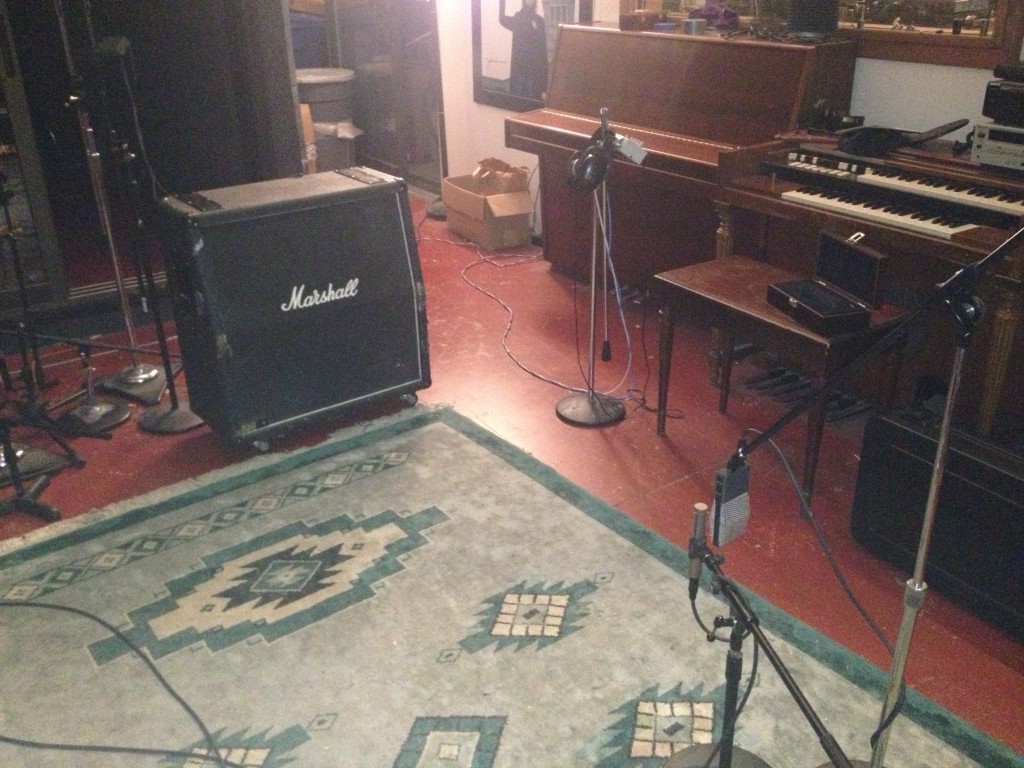
By album number nine, the members of Slough Feg and Justin Weis have grown incredibly comfortable with each other, which Weis notes only helped make the production a smoother process. “When you work with an artist repeatedly, the initial hurdles aren’t there as far as communication and getting down to business. Every time you start off with someone, it takes some getting to know each other- learning what they mean when they say things and what to expect from them. With Mike, I’ve recorded him so much that I know when he can do a better take. Whether it’s a guitar or vocal, I can be like, ‘Mike, you can do that better.’ During Twilight of the Idols or even Down Among the Deadmen, I was less confident in my opinions about the takes he was getting because I didn’t know him as well. On this last album, we didn’t really have any communication problems mixing this record. It went really smoothly. That was really cool.”
Justin Weis once again nailed a vintage engineering job for Slough Feg, but this time Mike Scalzi provided a set of lyrics that fit the sound like a glove. Few of Scalzi’s peers seemed to support the album title of Digital Resistance however. “Several people I’ve talked to said, ‘It’s stupid, you sure you want to call the album that?’ I’d say, ‘Yeah it’s dumb, but I like dumb stuff.’ It’s dumb and in a way, a really cheesy thing to call a record at this point, but it reminds me of those old metal records that had these kind of blunt titles like Stay Hungry and all that. I like that, I think it’s cool! At the same time, you could think that Digital Resistance means resisting something with digital technology, like we’re using digital technology to protest. You could think that as well, it’s however you interpret it. I don’t care. I just like it, I don’t give a fuck. It sounds silly and kind of comic book-ish. It sounds like Slough Feg. I mean, the name Slough Feg itself is silly and kind of comic book-ish.”
Scalzi’s words and themes on this album—though still a bit goofy and fun—are arguably his most serious yet. He makes his living as a philosophy professor, so one can imagine that he’s given the increasing prevalence of technology in daily life plenty of thought. Expecting perhaps a biased viewpoint from Scalzi and Weis, I turn to drummer Harry Cantwell, the youngest member of Slough Feg, for an opinion on the issue. A classic record nerd (catch him working the counter at one of the coolest record stores in San Francisco, Aquarius Records), he does acknowledge that technology has irreparably changed the way people absorb music. Whether that’s good or bad is up for debate according to Cantwell. “I’m not sure the overall effect has been necessarily positive or negative. It’s just the way things are now. The obvious positive is that I discover way more underground bands now, that would have been much more difficult fifteen years ago or whatever. But on the other hand, it’s created, at least for me personally, a much shorter attention span to music than I used to have. When I was in high school, I couldn’t get a new album that often, so you would really sink your teeth into it and milk it for all it was worth. Now I can decide in the first five minutes if I like it or not, because there’s a thousand other things I can move on to instantaneously. But lots of the best albums are the ones that take some time to really grow on you, and I think that’s getting lost a bit. Recently my computer crashed and I lost all of my music in my iTunes, and it was weirdly liberating starting from scratch, because it gave me a chance to really look at what albums I love and which ones were just taking up space, or which ones I genuinely want to revisit or whatever. It made me evaluate a lot of music much more closely, which is more rewarding I think.”
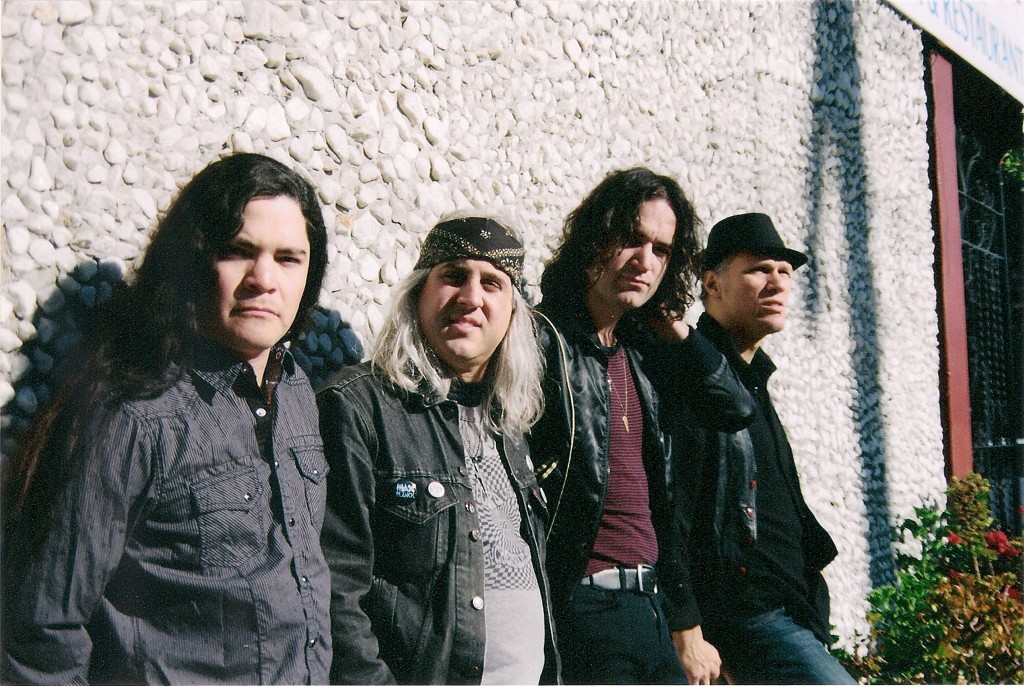
As a teacher, Scalzi has been a witness to technology’s growing influence just from observing his students in recent years. He insists however, that the issue has been a topic of interest since the beginning. “It’s something that I’ve noticed a lot more recently, but when you listen to all the Slough Feg albums, there’s a general theme running through all of the records about primitivism or feeling that modernization and technology are ruining the human spirit or something like that. Relying on technology, relying on conscious reason, relying on repression in civilization, which of course we’re totally fucking dependent on but at the same time, there’s a theme running through the records of wanting to rely more on instinct. It’s not a political or a social message, but it’s more of a poetic message of feeling stifled and bottled up living in society. That’s a theme that runs through almost every metal or punk album. There is a general theme of not just that kind of anxiety, but also like going back to primitive existence… Ape Uprising, Atavism, Deadmen, even back to the first album there’s stuff about that. The idea itself is not new to our records, but it is the technology thing that I’m feeling a lot of now. Not even in the sense of us needing to rely more on instinct, but technology is stifling our sort of animal spirits or whatever. It’s also stifling our intellectual side as well. It’s like I said in that Metal Blade thing, it’s making us physically and mentally flabby.”
Surprisingly enough, the young Cantwell stands with his elder bandmate. “I’d say it’s all things in moderation, but overall I tend to agree [with Scalzi]. Like I mentioned earlier about having a shorter attention span than I used to. That applies to my whole life now, and that’s almost certainly due to a sensory overload with constant internet, TV, music, etc. It’s ridiculous, but sometimes I’ll even make a concerted effort to not look at my phone for an hour or two or whatever, and just that alone is liberating. I have sort of an obsessive personality in general, so it’s hard for me to step back from something when I’ve had too much of it or whatever, and I’m sure a lot of other people are that way. And then there’s other obvious things like people are clearly going outside less, being less physically active, not actually using their memories when any factoid can just be looked up instantly, things like that.” It’s refreshing to hear those words coming from someone old enough to have memorized phone numbers in his childhood, yet young enough appreciate the virtues of Twitter. Perhaps there’s a broader audience for Mike Scalzi’s wordplay than what one may assume.
With song titles like ‘Analogue Avengers,’ ‘Digital Resistance’ and ‘The Luddite’ featured on the album, the obvious hypothesis would be that Scalzi’s message is that of an old man on a rant. However, anyone who has ever seen the man take over a stage knows that he possesses the energy, enthusiasm and fun-loving spirit of a musician half his age. Scalzi opens up that side of himself in ‘Warrior’s Dusk.’ Don’t jump to conclusions though- the song is not in any way a sequel to the classic ‘Warrior’s Dawn’ as Scalzi is quick to mention. “’Warrior’s Dusk’ is about being forced to grow up and not wanting to. In a way, it is related to ‘Warrior’s Dawn’ because that song is about Indians from a child’s perspective. That’s about it though. ‘Warrior’s Dusk’ is probably the most serious song on the record. It’s about being a little kid, growing up and having to get a real job, pay medical insurance, think about buying a house and totally not wanting to but you’re doing it because you’re embarrassed not to. I don’t feel any different than I did back then, but everyone else has these kids, and these houses and these mortgages, and all they do is work and they act like that person that was playing in that backyard is dead or something. All the lyrics are about the adventures that you go on and make up in your head while you’re throwing sticks and stones around. There’s a break in it and it suddenly says, ‘But then warriors don’t age well as it seems, when they dazzle you with mortgages and dreams.’ Mentally, I’m still playing in my backyard, making heavy metal records and living the lifestyle that I do. I’m still playing, I’m still fantasizing and playing games and everyone else is all about like mortgage and kids. That’s pretty much the theme of the song, and sort of one thing that runs through the album.’
Suddenly, the message that Scalzi is attempting to get across throughout Digital Resistance becomes astoundingly clear. Scalzi’s lyrics aren’t a mere rant against technology- his words are the lament of someone more human than most being forced to watch the world become a cold and sad place, an increasingly dystopian setting partially caused by the wave of high-tech. There is hope however. Scalzi brings up one person that refused to let the world make him bitter or jaded: our mutual pal, Bob Wright of Brocas Helm. “You’ve met Bob Wright. That guy is still a little kid on the inside the same way that I am. He’s still mature, responsible and developed as a human being and all that stuff, but he hasn’t turned off that side of himself. A lot of people do that, and I think it’s because he’s played this music that he kept that part of him alive. A lot of people turn off that creative and playful side of themselves, because they sort have to in order to survive in the world we live in. I find that really sort of tragic. That’s what ‘Warrior’s Dusk’ is about, and what a lot of Slough Feg songs are about,” Scalzi reveals.
As for the digital resistor, has he let our increasingly mechanized world kill that youthful side of him? I turn the clock back by about one and a half years. Justin Weis and I are sitting in the control room at Trakworx, and he has finished mastering a record by a black metal band called Amenra. Somehow a conversation on Mob Rules by Black Sabbath is struck and one of the nerdiest discussions about the engineering on the Dio-era Black Sabbath albums ensues. Weis isn’t nostalgically reminiscing about the music though (other than mentioning a quick anecdote about buying the album in his sophomore year of high school)- no, we talk about how kickass this music is in the present tense. He even lets out an amazing and hilarious impersonation of Dio singing ‘The Sign of the Southern Cross’ at one point. Weis hasn’t become “too mature” to goof around a little bit when his work is done for the day. In January 2013, the band enters a lunch break during the first round of sessions for Digital Resistance; we find ourselves all chatting about the New Wave of British Heavy Metal, and Scalzi goes to the computer where Weis is stationed and excitedly shows him YouTube videos of Paul DiAnno-era Iron Maiden songs. I look at the two, and I can’t help but remember doing the same with my friends just the other day back at my college dormitory. At these moments, Justin Weis and Mike Scalzi are no different from the legions of young kids geeking out over their favorite bands. Sure, they’re using the modern medium of YouTube to fuel their fun but that’s the point; the two are taking advantage of technology in the right way, making a human connection easier to realize instead of staring at a screen in solitude.
When the burritos are finished and lunch is over, Justin Weis is back on the clock. It’s time for the digital resistor to get to work and as we defined him, he impedes the flow of digital technology into the job. As one may expect, that process involves a few reels of analog tape. “My favorite thing about tape is recording the rhythm section to it,” Weis explains. “I have in the past done experiments where I recorded the same source to tape and Pro Tools simultaneously and played them both back and the tape just sounds so much fatter, it’s ridiculous. Having said that, I can work without tape.” Weis makes the case that perhaps we should have called him the digital potentiometer instead, given his apparent variable resistance. “For example, the half of Ape Uprising! I did was done all digital because they had recorded the other half of the album digitally, and I felt like me going to tape would have made too big of a difference. We didn’t use any tape on that album except during the mastering stage. You could listen to that album and then The Animal Spirits where they did hit tape, and you tell me if you hear a tapey sound on the drums.”
Remember though- Justin Weis is a resistor, not an open circuit. Current will make it through. For Weis, that means that some modern technology has found its way into his work. Though he learned his craft in the purely analog realm, Weis doesn’t wish to return to those days. “I’m nostalgic for it, but I don’t ever really wish for it because I have a hybrid system now with analog and digital. It gives me a lot of abilities that people didn’t have back then. Like for example, hitting save on a mix and opening it a day, a week or a month later and having it exactly how you left it. That was totally impossible in the console days. That’s the indispensable thing about mixing in Pro Tools. Now I can get that, and I can still get analog tone by using a summing mixer and analog outboard gear in the mastering chain. Using all Burl Audio converters doesn’t hurt either! All of that tends to give me a lot of the vibe of the console sound, while I still have the total recall on the mixing. That’s very, very important. I used to do all analog production because I’m old enough to have started recording before Pro Tools was viable, and my first three years of engineering—when I went to recording school and a couple years after that—we were doing two-inch tape on an analog console, mixing down onto DAT tape, sometimes onto two-track analog tape. That was very fun and I do kind of miss those days, but I wouldn’t go back either.”
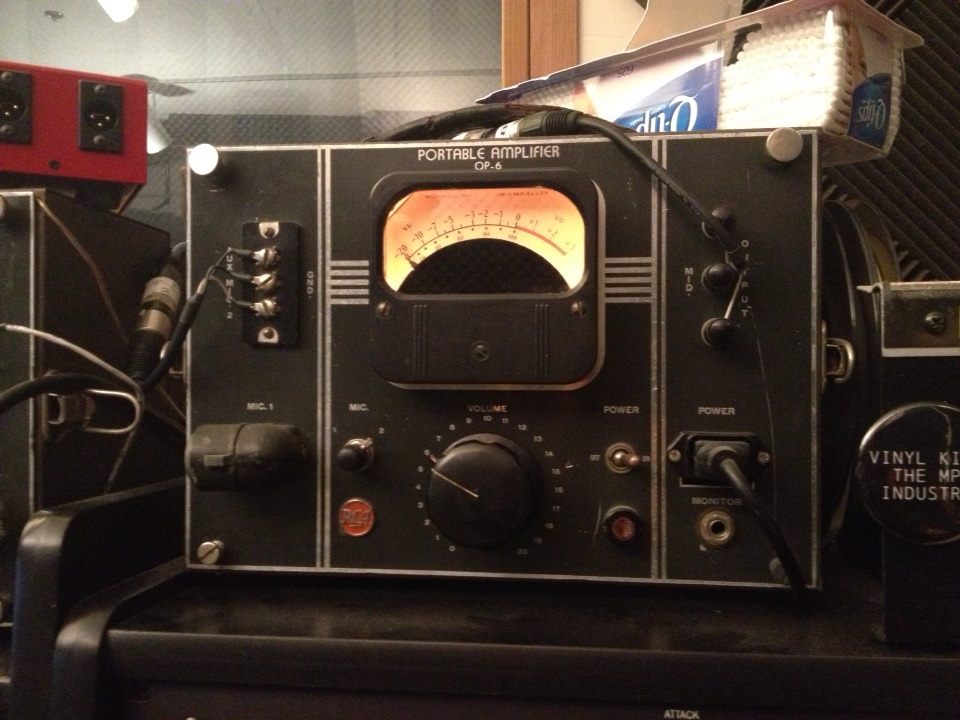
In October 2013, Slough Feg and Justin Weis finish production on Digital Resistance. Will the band return to Weis and Trakworx for the next one though? If Harry Cantwell has anything to say about it, one can count on it. “Firstly, he just really understands how the band should sound. He has a big appreciation for more classic production techniques I think, which obviously makes sense for us. If we were to record with someone who had that more modern approach, I think it would really suck a lot of the life out of our sound. As a producer, one thing I really like is that Justin has a really good ear for that kind of indefinable variable that makes a take good. As a drummer especially, it’s easy to get too caught up in a take not being completely precise or tight, or a fill not being exactly how you intended it, and the more you start smoothing that stuff away the more you start losing the character of the playing. Justin’s really good at noticing when a take has a certain swing or looseness or groove to it that the other ones don’t have. Like just because one take was technically played the best doesn’t necessarily mean it’s the best take.”
Scalzi, having known Weis for even longer, knows that he wouldn’t work with anyone else at this stage in his career. “The thing is with Justin, it’s partially because of his skills and his knowledge, but it’s also his intelligence in general. He’s got all the training and the knowledge and the experience, but he’s got a really good ear and he can think critically. A lot of engineers can’t really think on that level, they just kind of gloss over things. Justin can listen, think critically and keep track of it all in his mind and read people really well. Some of the non-technical skills he has are really helpful as well. He has a very enlightened mind; he knows how to react to people and how to get the best performance out of somebody… that whole side of engineering.”
That more holistic side of engineering is something that Weis himself acknowledges learning very early in his career. “You gotta be like a chameleon, each different artist requires different treatment in order to get the session going in a positive way. Some people like to joke around and kind of go slow and be relaxed and drink beer all day, other people are wound up really tight and they don’t want to waste a second of studio time. They’re watching the clock and the budget all the time. They require a completely different handling. It’s pretty easy to figure that out early on.” Though he is a master sound technician, Weis also knows that a happy client will record a more worthwhile release. “I hear about other engineers because I do mastering so much, and there are a lot of guys that are really opinionated and they become inflexible and unhelpful when the artist disagrees with them. It makes for a bad experience, and no repeat business. It makes for a final product that’s not as good as it could have been. Having a more easygoing nature is good, because in the end it’s whoever is paying for the session that gets to make the final call. When engineers get really bossy, it can be a big turnoff to the clients- not that you shouldn’t be confident and express your opinion with some force behind it, but you can’t be a dick about it. When that happens, it’s no fun for anybody, you’re just arguing all the time. Try to keep the mood up, that’s why I’m always making jokes and stuff.”
Scalzi seems to always be unhappy with Slough Feg albums after they come out (fans consistently disagree), but he refuses to fault Weis’ engineering. “I’m used to Justin doing such a fantastic job with the records that I kind of take it for granted. I’m spoiled by having Justin around for so long,” Scalzi admits. Audio engineering tends to be a pretty subjective thing- how can any individual truly define what sounds good or bad after all? The task is objectively impossible really, and that is the honest truth. It’s the basic and perhaps the only true law of sound engineering: use your ears. To these ears, Digital Resistance is a typical job well done from Justin Weis, and a musical triumph for Slough Feg. Business as usual for the digital resistor and the band that can seemingly do no wrong.

